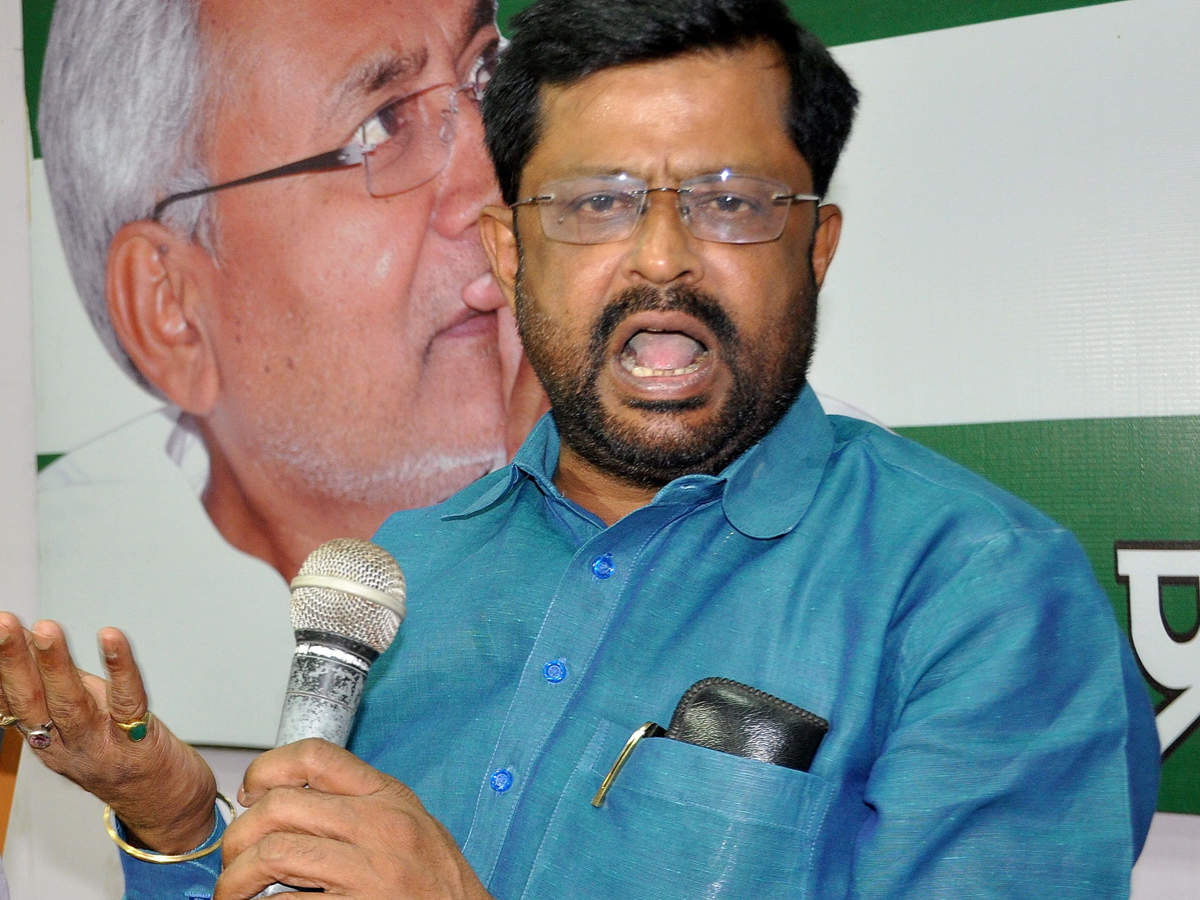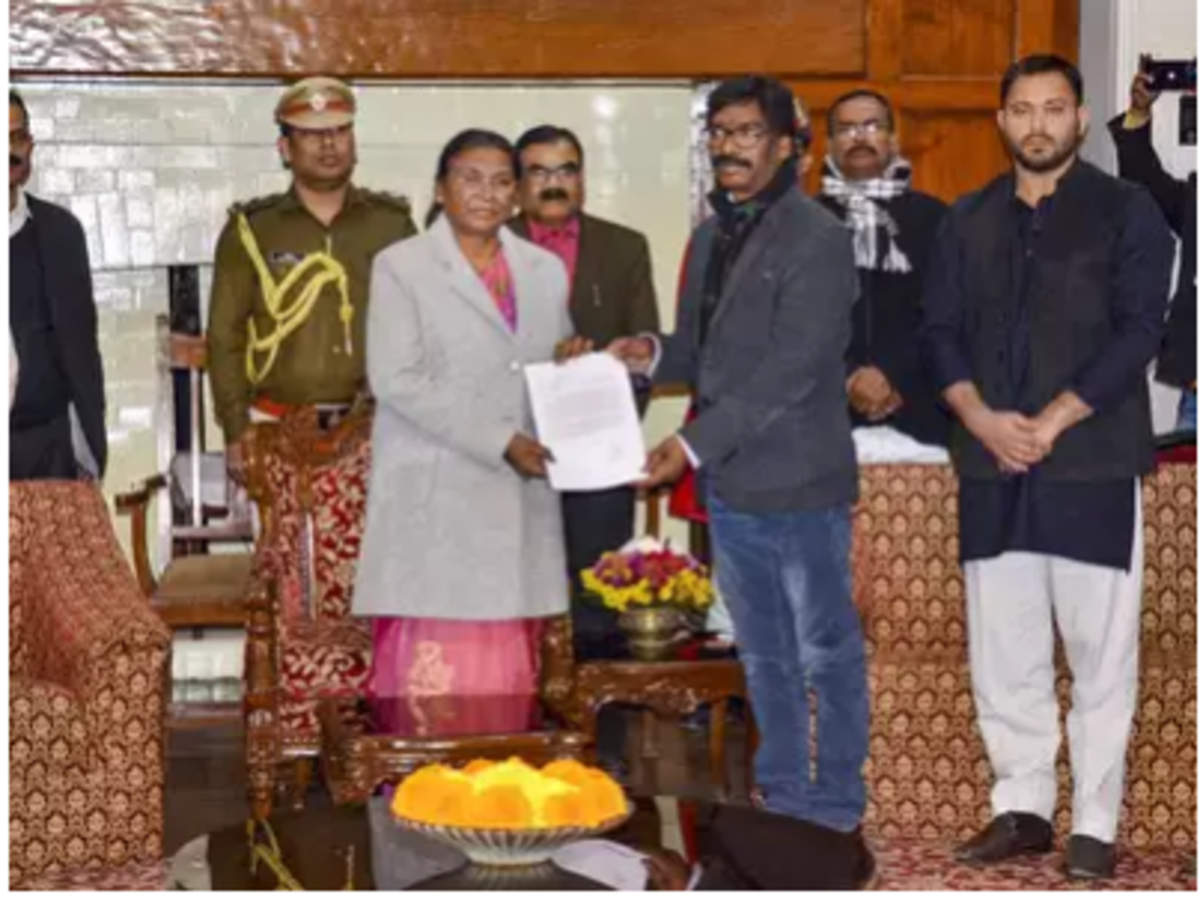BJP, AJSU could have won 40 seats as allies
TNN | Dec 25, 2019, 12.18 PM IST

NEW DELHI: If BJP and AJSU Party had fought as allies and not separately, they would still have fallen short of a majority but only just, winning 40 seats in the 81-member Jharkhand assembly. They would also have reduced the JMM-led alliance’s tally to 34 thereby becoming clear favourites to form the government, analysis of seat-by-seat vote share data shows.
The BJP-AJSU combined vote share of 41.5% was six percentage points higher than the JMM-Congress-RJD tally of 35.4%. With a gap of that magnitude, you would generally expect a clear majority, but that is not what adding up AJSU and BJP votes in each of the 81 seats shows.
If we assume that the partner that actually won more votes in each seat would have been the one to contest it and assuming a complete transfer of votes between the two parties (another big if), BJP would have won an extra 9 seats and AJSU another 4, taking their tallies to 34 and 6.
BJP-AJSU pact could have cut 9 seats of JMM, 4 of Congress
On the other side of this equation, JMM would have lost 9 seats and Congress 4, reducing them to 21 and 12, respectively. RJD’s lone win would have been unaffected by a BJP-AJSU alliance.
Interestingly, none of the seven seats won by Babulal Marandi’s JVM (Prajantantrik), NCP, CPI(ML) and independents would have seen any change in the outcome even if BJP and AJSU had contested jointly. In six of these, the NDA tally would have crossed UPA’s but would have fallen short of the actual winner’s. In the lone seat won by NCP, since BJP did not contest, there would have been no change in the outcome.
Of course, this is all based purely on arithmetic. The chemistry of a possible alliance, or a lack of it, could have yielded very different results from these.
The data also serves to clinch the argument between the two estranged partners on what a fair seat-sharing arrangement would have been. There were a total of 8 seats on which the AJSU got more votes than BJP, including the two seats it won. In a fair arrangement based on relative strengths, therefore, BJP should have contested 73 seats and AJSU 8.
The BJP-AJSU combined vote share of 41.5% was six percentage points higher than the JMM-Congress-RJD tally of 35.4%. With a gap of that magnitude, you would generally expect a clear majority, but that is not what adding up AJSU and BJP votes in each of the 81 seats shows.
If we assume that the partner that actually won more votes in each seat would have been the one to contest it and assuming a complete transfer of votes between the two parties (another big if), BJP would have won an extra 9 seats and AJSU another 4, taking their tallies to 34 and 6.
BJP-AJSU pact could have cut 9 seats of JMM, 4 of Congress
On the other side of this equation, JMM would have lost 9 seats and Congress 4, reducing them to 21 and 12, respectively. RJD’s lone win would have been unaffected by a BJP-AJSU alliance.
Interestingly, none of the seven seats won by Babulal Marandi’s JVM (Prajantantrik), NCP, CPI(ML) and independents would have seen any change in the outcome even if BJP and AJSU had contested jointly. In six of these, the NDA tally would have crossed UPA’s but would have fallen short of the actual winner’s. In the lone seat won by NCP, since BJP did not contest, there would have been no change in the outcome.
Of course, this is all based purely on arithmetic. The chemistry of a possible alliance, or a lack of it, could have yielded very different results from these.
The data also serves to clinch the argument between the two estranged partners on what a fair seat-sharing arrangement would have been. There were a total of 8 seats on which the AJSU got more votes than BJP, including the two seats it won. In a fair arrangement based on relative strengths, therefore, BJP should have contested 73 seats and AJSU 8.

